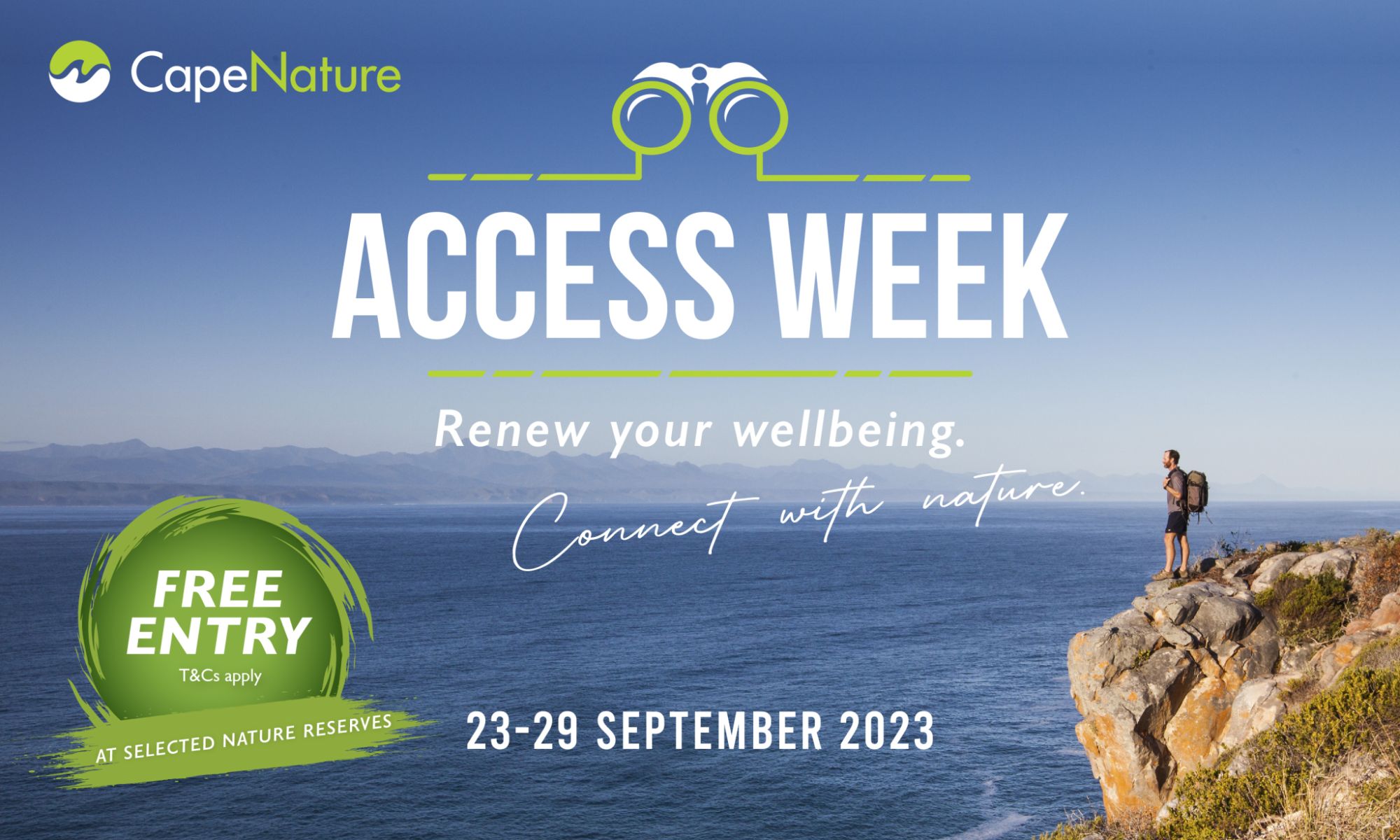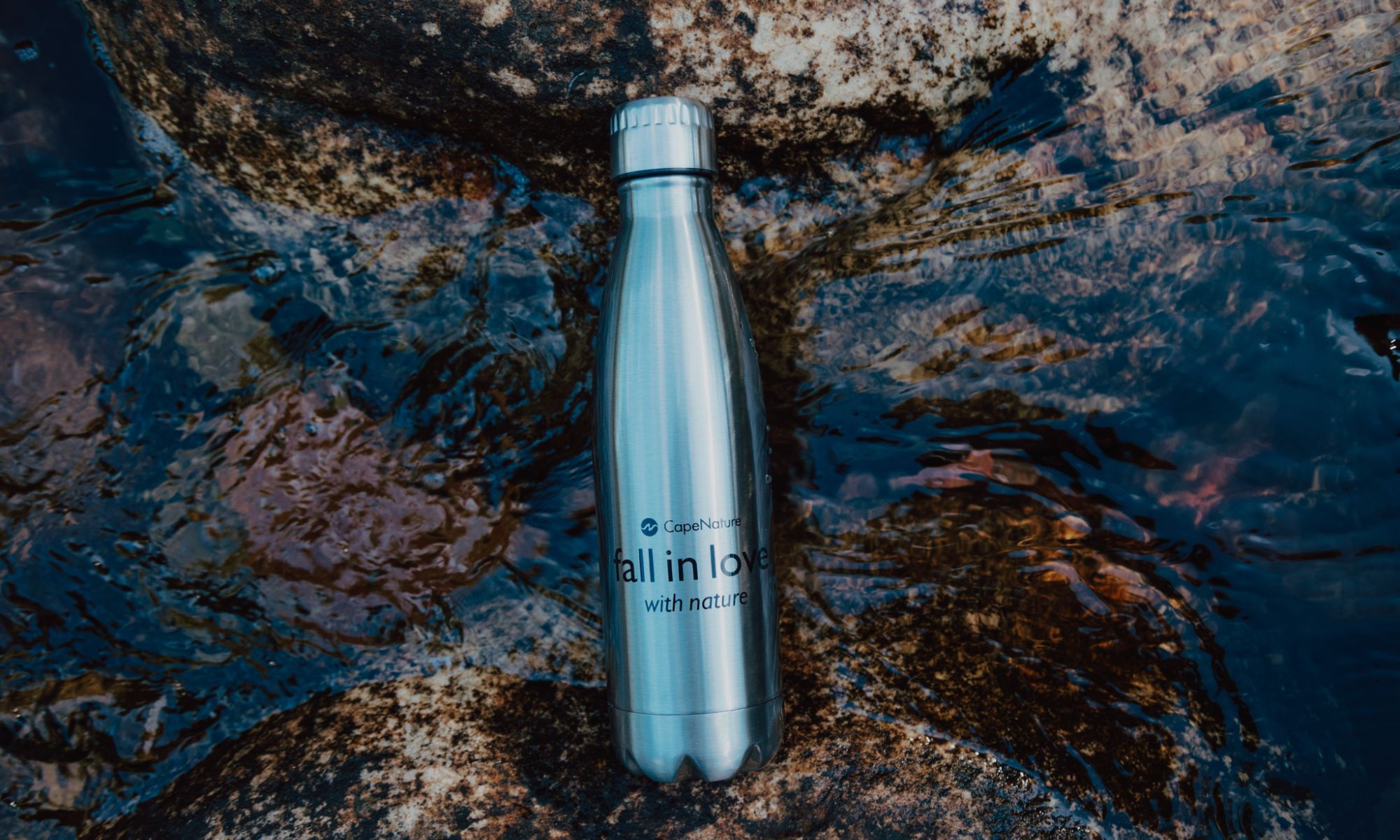
Renew Your Wellbeing - Connect With Nature for Free This Access Week at CapeNature
CapeNature celebrates its 9th annual Access Week between the 23rd and 29th of September 2023. The public are invited to access any one of 24 selected nature reserves across the Western Cape for free during this time. Visitors will be allowed day entry to enjoy walking, hiking, bird watching, swimming and mountain biking at no cost. CapeNature will also be facilitating a variety of programmes for different community groups during this period.
This year, CapeNature is focusing on the importance of making meaningful connections in nature. Although we may spend time in nature, better and deeper connections can be made through focusing on the right things and approaching time in nature differently. It is more about the quality of time spent in nature, rather than the quantity.
“We are offering a variety of community groups the opportunity to participate in facilitated programmes. Connecting with nature will be enhanced through a series of smartly structured activities. The programmes are an extension of CapeNature’s continued partnership with the Masiyembo Association who has trained CapeNature staff to facilitate their “NatureAllied” programmes”, says Dr Razeena Omar, CEO: CapeNature.
The entity will be facilitating programmes for a range of groups including schools, senior citizens, youth and non-profit community groups during the week. The hope is that a better connection to nature promotes a deeper sense of care for the natural environment, and with that, the desire to protect it. The more we connect with something, the more value it holds.
To top it off, a photo competition will be held and anyone that enters one of the selected nature reserves during Access Week, will be eligible to enter. An accommodation voucher for two people for two nights is up for grabs! Visitors must simply photograph their family or friends (with permission) connecting to nature. Pictures can be showcased on the competition post on Facebook to enter. The post should also be liked and shared.
Participating nature reserves range from the West Coast to the Winelands, Overberg, Garden Route and even the Klein Karoo and include:
West Coast: Groot Winterhoek, Bird Island, Cederberg, Matjiesrivier, Rocherpan.
Winelands: Limietberg, Hottentots Holland, Jonkershoek, Vrojlikheid. (Note Assegaaibosch closed)
Overberg: Kogelberg, De Mond, De Hoop, Marloth, Grootvadersbosch, Walker Bay, Geelkrans.
Garden Route: Robberg, Keurbooms River, Goukamma, Outeniqua.
Karoo: Swartberg (cottages closed, but day open), Gamkaberg, Anysberg.
The following are important to note when booking: Free access is only applicable to regular reserve hours and to entries at CapeNature reserve gates. Unfortunately, no free access will be given to those who book through the contact centre. No pre-bookings are necessary although the maximum capacity availability applies to visitor walk-ins. Free access fee will pertain to general access, in other words the conservation fee to include hiking, mountain biking and other day activities allowed. The waiver unfortunately does not apply to the Whale Trail, select landowners, partners or concessions.
If groups are interested in facilitated access, they can contact the Learning and Awareness team at learning@capenature.co.za.





